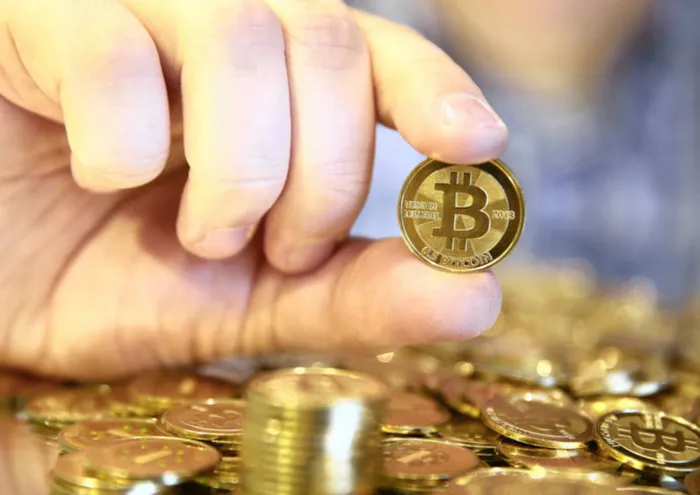Kenyan start-up takes on remittance agents with bitcoin service

Mike Caldwell hold a handful of Bitcoins that he just made on April 12, 2013 in Sandy, Utah. Bloomberg News/George Frey Mike Caldwell hold a handful of Bitcoins that he just made on April 12, 2013 in Sandy, Utah. Bloomberg News/George Frey
Nairobi - BitPesa, a Kenyan start-up, will take on remittance providers like Western Union by using the bitcoin virtual currency to cut transaction costs for Kenyans working abroad who send home $1.2 billion (R12.2bn) a year.
The online service planned to start on a trial basis by March next year, after obtaining regulatory approval, and aimed to achieve 1 percent market share within a year by handling 6 500 transactions a month, chief executive Elizabeth Rossiello said this week.
Bitcoin gained credibility this month after law enforcement and securities agencies said in US Senate hearings that it could be a legitimate means of exchange. Bitcoins traded at a record $1 098 apiece on the Tokyo-based Mt Gox online exchange yesterday, fuelled by speculators snapping up the virtual currency as it gains wider acceptance.
Western Union and MoneyGram International deduct between $10 and $17 to send $200 to Kenya from the US, including currency exchange charges, in a process that can take an hour to five days, according to the World Bank’s Send Money Africa price database. BitPesa will charge 3 percent on overseas transfers and says the money arrives the same day. At that rate, it would cost $6 to send $200 via BitPesa.
After Nigeria and Senegal, Kenya is the biggest recipient of remittances in sub-Saharan Africa, with more than 3 million people of Kenyan origin living abroad. North America is the source of about half of the remittances, followed by Europe at almost a third.
Overseas transfers to the country are growing almost five times faster than the sub-Saharan African average of 6.2 percent this year. The World Bank says the region is the most expensive for remittances mainly due to limited competition and regulatory barriers.
Rossiello said BitPesa was in talks to partner with two Kenyan commercial banks, and was considering working with at least one telecommunications company and one money-transfer agent. Pesa means money in Swahili.
Safaricom, 40 percent owned by Vodafone, runs Kenya’s most widely used cellphone money transfer service, M-Pesa. It competes with Airtel Kenya’s Airtel Money, Essar Telecoms Kenya’s yuCash and Orange Money by Telkom Kenya, a unit of France’s Orange.
Bitcoin is used as an alternative to cash to pay for everything from sweets to smartphones on the internet. There are more than 12 million bitcoins in circulation, according to Bitcoin Charts, a website that tracks exchange activity.
The rally in Bitcoin gathered steam last month after regulators shut down the Silk Road hidden website, where people could obtain guns, drugs and other illicit goods using bitcoins. That action has generated optimism that the digital money will become more widely used for legal purposes.
“The minute you confirm the transaction, the price is locked in,” Rossiello said. “We absorb the exchange risk, and we hedge our risk.”
Commercial banks handle about half of the remittance transactions to Kenya, led by Equity, the second-biggest lender by market value, and Barclays Bank Kenya, each controlling 14 percent of the market. Western Union accounts for 31 percent of business and MoneyGram 6 percent, according to a 2010 study commissioned by the World Bank.
“There is an element of reliability with banks,” Sarah Wanga, a research analyst at Nairobi-based investment firm ICEA Lion Group, said. “But if this new system markets itself right, makes itself a household name, and it’s cheaper, it could become a threat.”
Under the BitPesa model, the sender will use an internet-based service to make payments and the funds will be traded into bitcoins. BitPesa will convert the virtual money into a conventional currency at a competitive exchange rate for withdrawal by recipients through either a cellphone or a bank account. – Bloomberg